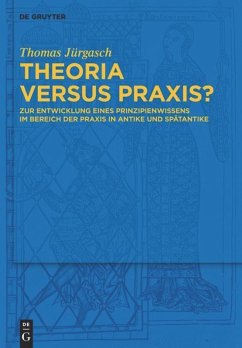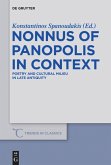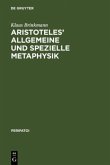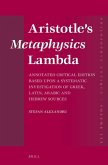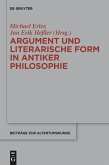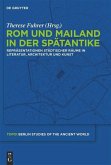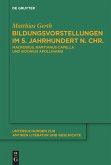Typically, theory and practice are regarded as polarities. Yet is this an appropriate perspective? In a survey of the philosophical and theological traditions of antiquity and late antiquity, this study traces key moments in the development of principles in the domain of practice, and comes to a surprising conclusion: theory and practice are not opposites, but instead, are fundamentally interrelated and based on a common principle.
"Was können wir sicher wissen?" In einem Durchgang durch die antike und spätantike Tradition stellt die vorliegende Untersuchung diese Grundfrage abendländisch-metaphysischen Denkens mit Blick auf ihre Praxisrelevanz. Kann das theoretisch eingesehene Wissen der Metaphysik eine Rolle für die menschliche Praxis spielen? Oder fällt dieses Wissen in den Bereich der "grauen Theorie" und ist als solches praktisch unbrauchbar? Um sich einer Antwort auf diese Frage anzunähern, spannt das Werk einen Bogen von den sogenannten "Vorsokratikern" über Positionen der klassisch griechischen Philosophie (Platon, Aristoteles) und des Hellenismus (Stoa, Epikur) bis hin zu den neuplatonischen Ansätzen der Spätantike (Plotin, Augustinus, Boethius). Dabei kommt der Autor zu einem überraschenden Ergebnis: Theorie und Praxis bilden keine Gegensätze; vielmehr sind sie durch ein einheitliches Prinzip wesentlich aufeinander zu beziehen.
"Was können wir sicher wissen?" In einem Durchgang durch die antike und spätantike Tradition stellt die vorliegende Untersuchung diese Grundfrage abendländisch-metaphysischen Denkens mit Blick auf ihre Praxisrelevanz. Kann das theoretisch eingesehene Wissen der Metaphysik eine Rolle für die menschliche Praxis spielen? Oder fällt dieses Wissen in den Bereich der "grauen Theorie" und ist als solches praktisch unbrauchbar? Um sich einer Antwort auf diese Frage anzunähern, spannt das Werk einen Bogen von den sogenannten "Vorsokratikern" über Positionen der klassisch griechischen Philosophie (Platon, Aristoteles) und des Hellenismus (Stoa, Epikur) bis hin zu den neuplatonischen Ansätzen der Spätantike (Plotin, Augustinus, Boethius). Dabei kommt der Autor zu einem überraschenden Ergebnis: Theorie und Praxis bilden keine Gegensätze; vielmehr sind sie durch ein einheitliches Prinzip wesentlich aufeinander zu beziehen.

